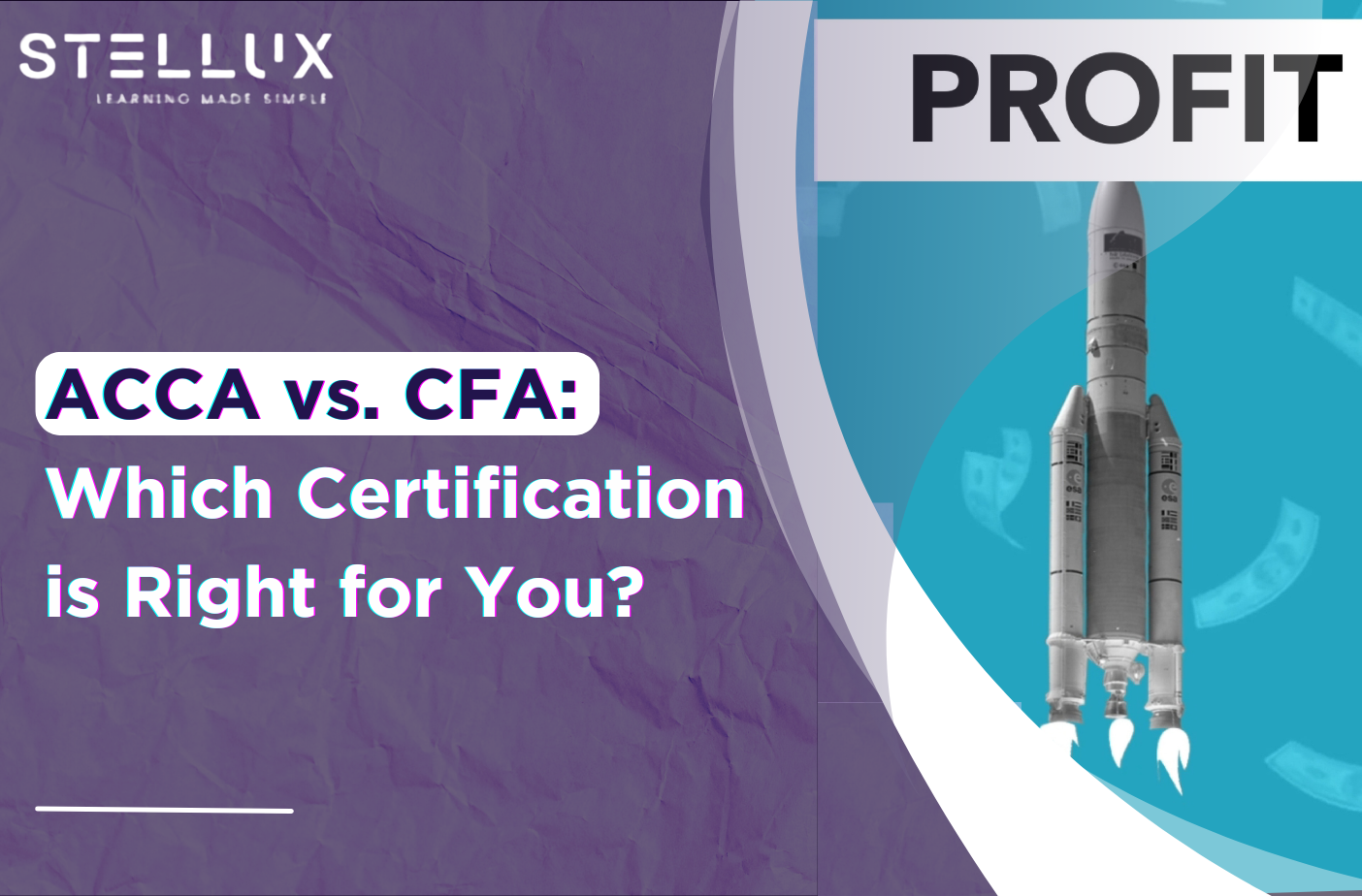Welcome to our comprehensive guide on the significance of certifications in finance and accounting. This blog post aims to provide you with valuable insights into the world of certifications in the finance and accounting industry.
We will delve into why certifications are important, the various certifications available, their benefits, and how to obtain them. So let’s get started!
The Importance of Certifications in Finance and Accounting
Certifications play a vital role in the finance and accounting industry. They help professionals acquire specialized knowledge and skills, validate their expertise, and enhance their career prospects.
In an increasingly competitive job market, employers often look for candidates with certifications to ensure their employees possess the necessary skills and expertise to excel in their roles.
Certifications also serve as evidence of a professional’s commitment to continuous learning and development. They demonstrate that individuals are dedicated to staying updated with the latest industry trends, regulations, and best practices.
Additionally, certifications can enhance an individual’s credibility, build trust with clients and employers, and open doors to new opportunities.
Now, let’s explore some of the most recognized and sought-after certifications in the finance and accounting field.
1. Association of Chartered Certified Accountants (ACCA)
The Association of Chartered Certified Accountants (ACCA) is a globally recognized professional accounting body headquartered in the United Kingdom. The ACCA qualification is well-regarded and prepares individuals for a successful career in accounting, finance, and business.
The ACCA qualification consists of three levels: Applied Knowledge, Applied Skills, and Strategic Professional. Candidates must pass a combination of exams and accrue relevant practical experience to obtain the ACCA qualification. The program covers areas such as financial accounting, management accounting, taxation, and corporate reporting.
ACCA members are equipped with a broad range of skills and knowledge suitable for roles in public practice, industry, and the public sector. They have opportunities in areas such as financial management, financial analysis, audit, and taxation.
2. Certified Management Accountant (CMA)
The Certified Management Accountant (CMA) certification is designed for professionals who specialize in management accounting and financial management. Offered by the Institute of Management Accountants (IMA), the CMA certification is recognized globally and signifies expertise in areas such as financial planning, analysis, control, and decision support.
To earn the CMA certification, candidates must pass the two-part CMA exam, meet educational requirements, and have relevant work experience. The exam covers topics such as financial reporting, planning, performance, and control.
CMAs possess a distinctive set of skills that are highly valued in organizations. They are equipped to analyze financial data, provide strategic insights, and support decision-making processes. CMAs can work in various roles, including financial planning and analysis, budgeting, cost management, and internal auditing.
3. Certified Public Accountant (CPA)
The Certified Public Accountant (CPA) certification is one of the most prestigious and widely recognized certifications in the accounting profession. It is granted by the American Institute of Certified Public Accountants (AICPA) in the United States. To become a CPA, individuals must pass the Uniform CPA Exam, meet educational requirements, and fulfill relevant work experience criteria.
The CPA certification offers numerous benefits. It equips accountants with in-depth knowledge in areas such as financial accounting, auditing, taxation, and business law. CPAs are highly sought after by employers and have greater career growth opportunities compared to non-certified accountants. They can work in various roles, including public accounting, corporate accounting, government accounting, and consulting.
4. Chartered Financial Analyst (CFA)
The Chartered Financial Analyst (CFA) certification is renowned worldwide for its rigorous curriculum and high standards. Offered by the CFA Institute, the CFA program is designed for professionals who aspire to build a career in investment management and financial analysis.
The CFA program consists of three levels, each focusing on different aspects of investment management. Candidates are required to pass all three levels and accumulate relevant work experience to earn the CFA charter. The program covers topics such as ethics, economics, financial reporting and analysis, portfolio management, and equity and fixed-income investments.
Earning the CFA charter demonstrates proficiency in advanced investment analysis and decision-making. It is highly valued by employers in the finance industry, including investment banks, asset management firms, and hedge funds. The CFA charter opens doors to diverse career paths, including research analyst, portfolio manager, risk manager, and financial advisor.
The Benefits of Obtaining Certifications
Now that we have explored some of the prominent certifications in finance and accounting, let’s delve into the benefits of obtaining these certifications.
1. Enhanced Career Opportunities
Certifications can significantly expand your career prospects. They make you stand out among other candidates, especially in competitive job markets. Employers often prioritize certified professionals because they have demonstrated a commitment to continuous learning and possess specialized knowledge and skills.
Certifications can open doors to higher-level positions, increased responsibilities, and better remuneration packages. They provide a competitive edge and increase your chances of securing desirable job opportunities in the finance and accounting industry.
2. Increased Salary Potential
Certifications can lead to higher earning potential. According to various studies, certified professionals in finance and accounting tend to earn higher salaries compared to their non-certified counterparts. Employers are willing to pay a premium for professionals with recognized certifications, as they bring value through their expertise and industry-specific knowledge.
Certifications such as CPA, CFA, CMA, and ACCA are globally recognized, and employers often perceive certified professionals as more competent and capable. Therefore, obtaining these certifications can lead to better compensation packages and increased financial stability.
3. Continuous Professional Development
Certifications require individuals to undergo rigorous training, pass exams, and fulfill ongoing continuing professional development (CPD) requirements. CPD ensures that professionals stay updated with the latest industry trends, regulations, and practices. It helps them enhance their knowledge and skills, ensuring they remain competent in their roles.
Certifications provide structured learning opportunities through study materials, exam preparations, and access to designated resources. Professionals can leverage these resources to enhance their understanding of complex financial concepts, accounting principles, and industry-specific regulations.
4. Recognition and Credibility
Certifications provide recognition and credibility within the finance and accounting industry. They serve as proof of your expertise, skills, and commitment to professional excellence. Employers, clients, and colleagues perceive certified professionals as more credible, trustworthy, and reliable.
Certifications from reputable organizations such as AICPA, CFA Institute, IMA, and ACCA hold significant weight in the industry. They validate your competence and make you a valuable asset to organizations and clients.
How to Obtain Certifications
Now that we understand the significance and benefits of certifications in finance and accounting, let’s explore how to obtain these certifications.
1. Research and Choose the Right Certification
Research different certifications and understand their eligibility requirements, curriculum, and career prospects. Consider your career goals, interests, and strengths to determine the most suitable certification for you. Seek guidance from professionals or mentors who have already obtained certifications to gain valuable insights.
2. Meet the Eligibility Requirements
Ensure you meet the eligibility requirements of the chosen certification. These requirements may include educational qualifications, work experience, and membership in professional organizations. Familiarize yourself with the specific criteria and ensure you fulfill them before proceeding further.
3. Preparation and Study
Prepare for the certification exams diligently. Obtain study materials, enroll in preparatory courses, and utilize online resources to enhance your understanding of the subjects. Join study groups or forums to interact with fellow candidates and share knowledge and study tips. Practice solving mock exams to gauge your understanding and identify areas that require improvement.
4. Examination
Register for the certification exams and allocate sufficient time for exam preparation. Follow a structured study plan and maintain discipline and consistency in your study routine. Familiarize yourself with the exam format and time limitations to manage your time effectively during the actual examination.
5. Continuous Learning and CPD
Once you obtain the certification, embrace continuous learning and professional development. Participate in seminars, workshops, and conferences to keep up with industry trends. Engage in networking activities to connect with professionals and gain valuable insights. Fulfill the CPD requirements of your certification to ensure your skills and knowledge remain current.
Conclusion: Unlocking Your Potential through Certifications
Certifications in finance and accounting hold immense significance and provide numerous benefits to professionals in the industry. Whether you are a Commerce student, B.Com student, ACCA student, or CMA student, obtaining certifications can boost your career prospects, increase your earning potential, and enhance your credibility.
CPA, CFA, CMA, and ACCA are just a few examples of the certifications available in the field of finance and accounting. Each certification offers unique opportunities and equips individuals with specialized knowledge and skills in different areas.
If you aspire to excel in the finance and accounting industry, consider obtaining certifications that align with your career goals and interests. Invest time and effort in exam preparation, stay committed to continuous learning, and embrace ongoing professional development. By doing so, you can unlock your full potential, stand out in the job market, and achieve long-term success in your career.
So, what are you waiting for? Start exploring the certifications that resonate with you and embark on a journey of professional growth and success in the finance and accounting industry!
Remember, certifications are not just pieces of paper – they are gateways to a world of opportunities!





